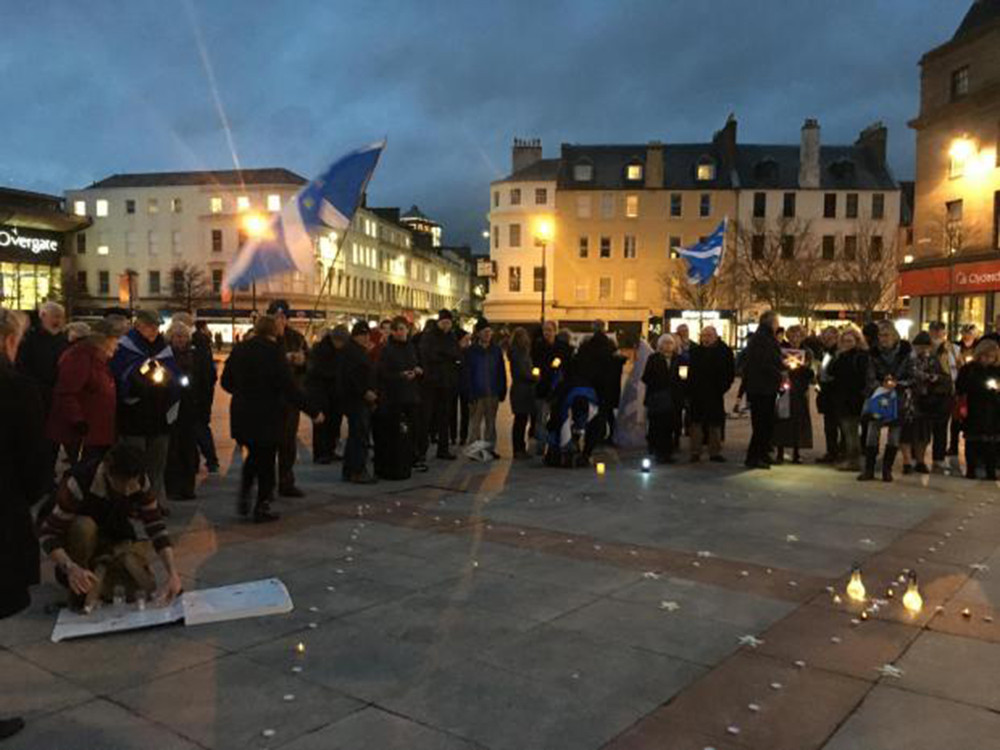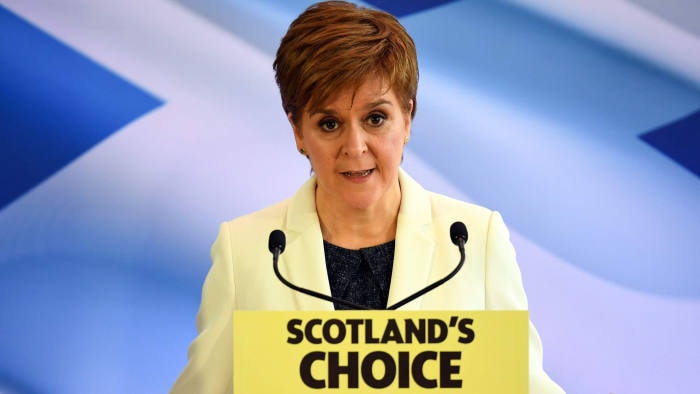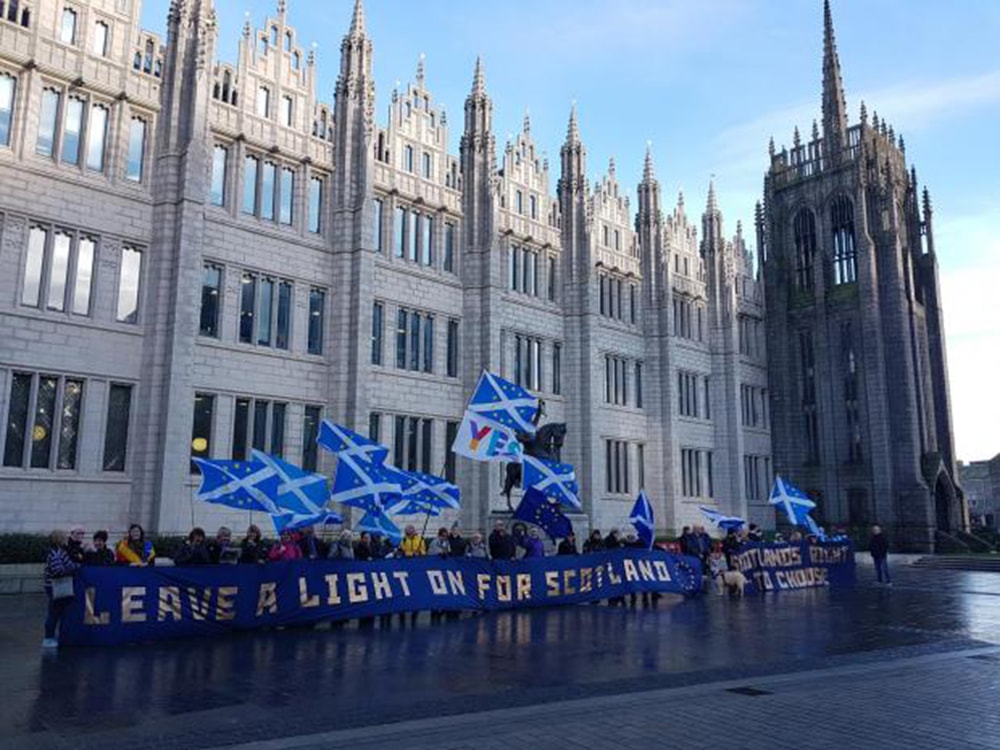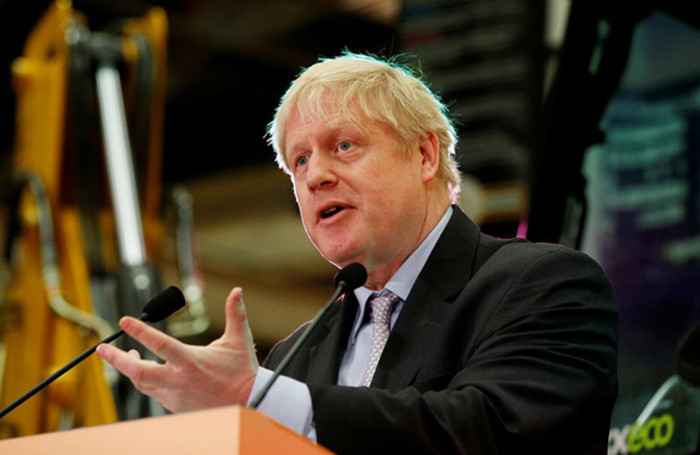Regretting the EU, Scotland seeks independence
(Baonghean) - These days, the British people must be experiencing indescribable emotions as they are no longer citizens of the European Union, and Britain is no longer part of the European “common home”. British Prime Minister Boris Johnson said that Britain’s official exit from the European Union “spreads hope and opportunity to every part of Britain”. But perhaps the “every part” that Mr. Johnson mentioned does not include Scotland, which still hopes to reintegrate with Europe after gaining independence.
Tears in Scotland
Officially leaving the European Union, ending more than 3 years of turmoil, was a great political victory for British Prime Minister Boris Johnson and Brexit supporters. Therefore, the UK had a jubilant celebration night with spectacular performances, marches of crowds celebrating the day Britain could walk on the path it chose. But that was not what happened in Scotland, where 62% of voters opposed Brexit.
 |
| In the Brexit referendum, all Scottish constituencies had a majority of voters choosing to remain in the EU (yellow). Photo: beltanenetwork.org |
Therefore, the Scottish people say that the word that best describes their emotions at the moment Britain leaves the European Union is “tears”.
Many people have joined protests, from Dumfries to Golloway, holding candlelight vigils in Dundee town square to express their regret that they are no longer considered citizens of the European Union.
In the 2016 Brexit referendum, 62% of Scottish voters supported remaining in the European Union. But that number has gradually increased since then, with recent polls showing that around 70% of Scottish voters want Brexit cancelled. The desire to remain part of the European Union has reignited the demand for independence in Scotland, which had been dormant since the first referendum in 2014, when 55% of Scottish voters did not want Scotland to leave the UK. A poll last week showed that the number of people in favor of Scottish independence has now surpassed the number of people against it, reaching 51%.
 |
| Scottish people light candles in Dundee City Square to express their regret at leaving the European Union. Photo: The National |
“The United Kingdom that the Scots once wanted to be a part of no longer exists!”
Scottish First Minister Nicola Sturgeon also announced that, after the UK left the European Union, Scotland would accelerate the process of claiming independence, and affirmed that "the United Kingdom that Scots once wanted to be a part of no longer exists!" Ms. Sturgeon also posted a status on Twitter stating: "Scotland will return to the center of Europe as an independent country". According to Ms. Nicola Sturgeon, demanding independence represents the choice of Scottish voters, that Scotland will steadfastly pursue the path to become a member of the "European family" when the political gap between London and Edinburgh is increasingly widening.
 |
| Scottish First Minister Nicola Sturgeon has announced that she will speed up the process of claiming independence for Scotland. Photo: AFP |
Thorns ahead
The plan to hold a referendum after the May 2021 parliamentary election has been criticized by many Scottish independence supporters as being too late. However, Nicola Sturgeon explained that the journey to independence and re-entering the European Union is not an easy one, so Scotland cannot rush it. What is necessary for the Scottish people now is to unite, focus on the goal ahead and continue the unfinished path.
In preparation for this accession process, the government of First Minister Nicola Sturgeon has a new legislative plan to bring Scotland's domestic policies as close as possible to EU regulations. But this is certainly not an easy goal and could lead to more intense conflicts between the Scottish government and the government of Prime Minister Boris Johnson. When it comes to negotiating a deal with the European Union in the "post-Brexit" period, Boris has expressed his view that he does not want to closely align British policy with European policy in important areas such as workers' rights, state benefits or environmental protection. As British and EU policies become more and more distant, it will be very difficult for Scotland - as a part of the UK - to establish a policy system close to the EU.
 |
| The “Leave A Light On For Scotland” movement opposes Britain leaving the European Union. Photo: The National |
If independence were possible, Scotland would have to start the process all over again to return to the EU.
In a recent statement, former President of the European Council Donald Tusk also said that he personally shared the wishes of the Scottish people, and European countries could welcome Scotland back after independence, but Europe has strict treaties and procedures when a member wants to join. There will be no automatic priority applied to Scotland because Scotland was once part of the European Union, for example, the exemption rule of the Schengen Security Treaty. Therefore, if Scotland could become independent, it would have to start the process from scratch, starting from submitting an application to join like other new members and must meet all the requirements and standards that the Union sets for a new member.
The most difficult standard for Scotland at present is the budget deficit. According to regulations, all members of the European Union must maintain a budget deficit of less than 3%. Meanwhile, according to data just released by the Scottish government last week, the gap between public spending and budget revenue in Scotland is at 5 billion pounds, equivalent to 7.2%. To reduce the budget deficit from 7.2% to 3% is certainly a big challenge for any government, even in a stable economic and political situation, let alone one that has just experienced the "shock" of an unwanted breakup like Scotland.
 |
| Scotland's determination to demand independence will have to overcome the barrier named Boris Johnson. Photo: Reuters |
No matter how determined Scotland is to demand independence and how carefully it prepares to rejoin the European Union, the most important thing for Scotland is to overcome the barrier named Boris Johnson - who is also very determined to protect the territorial integrity of the United Kingdom after completing the Brexit goal.
In mid-January, Boris Johnson once rejected Scotland's request to hold a second independence referendum, and he will likely continue to reject it in Scotland's next proposals. Therefore, the public will certainly have to witness a fierce confrontation between Johnson and Sturgeon on the path to Scotland's independence.


